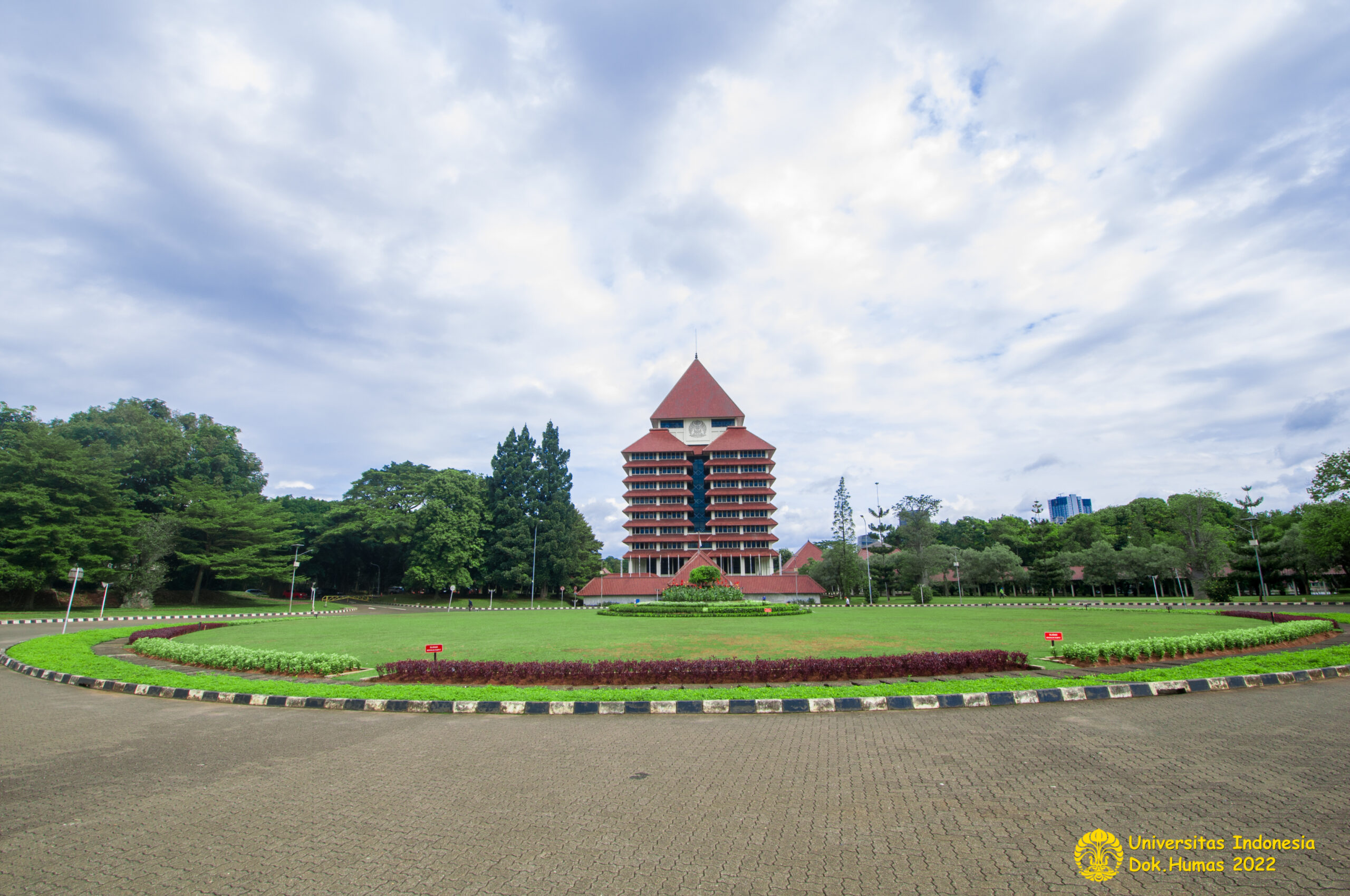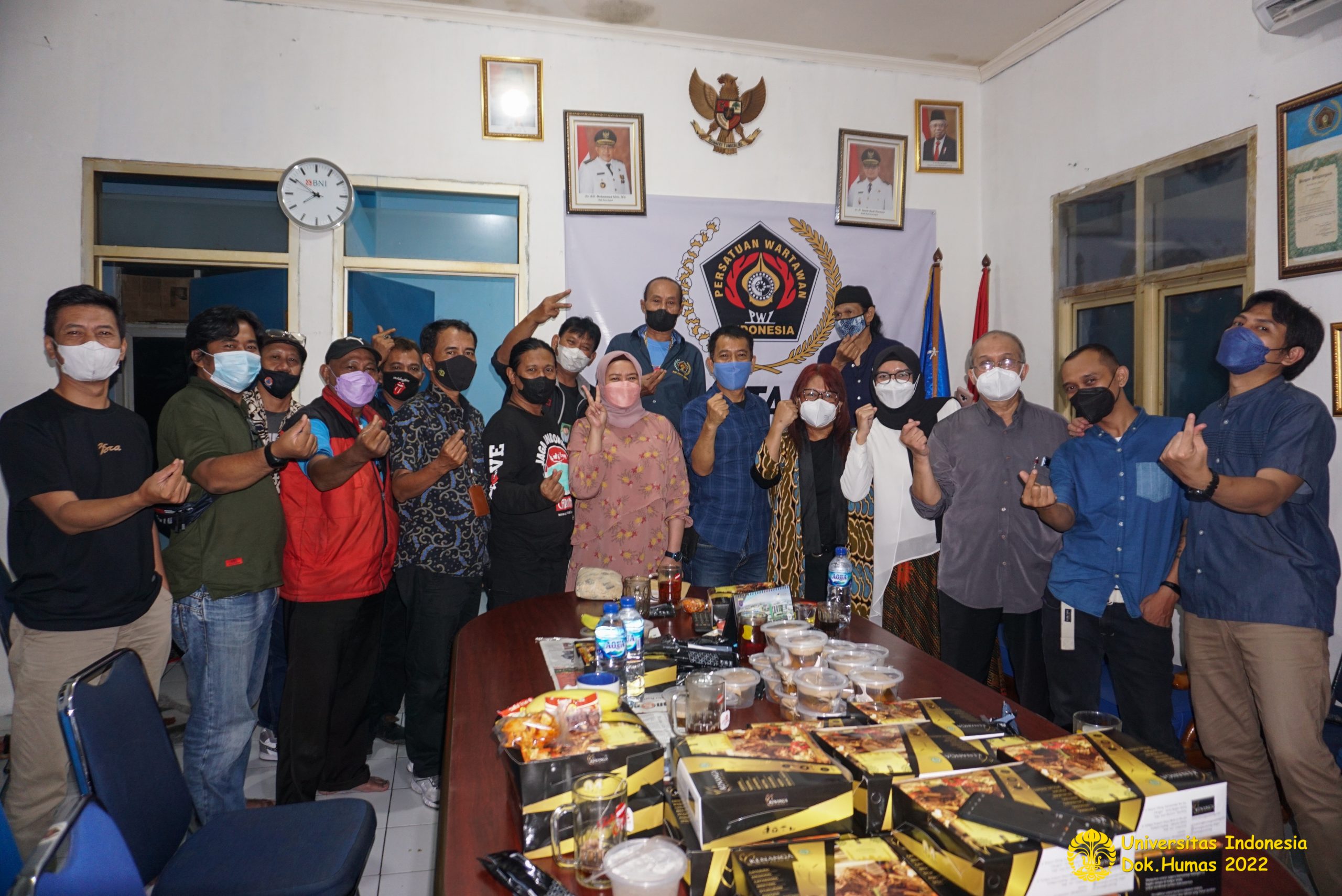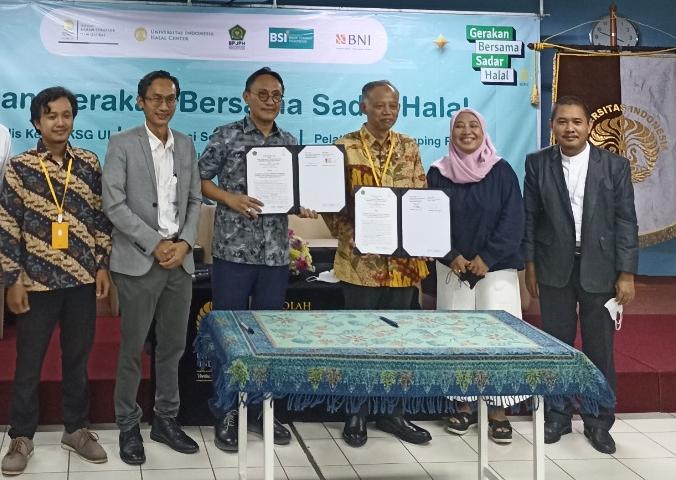
Author: Humairah Nur
In order to launch the 40th edition of Prisma Journal, the Department of Political Science of Universitas Indonesia (UI) and Prisma Journal organized a webinar entitled “Digital Political Economy in Indonesia” on Wednesday (8/12). The event was held online via zoom and live streamed on the FSPS (Faculty of Social and Political Sciences) UI YouTube Channel. On this occasion, the webinar discussed two main issues, namely the digital political economy in Indonesia, and the opportunities and challenges of digitizing the political economy in Indonesia.
Prisma journal is a popular publication that contains alternative thoughts, summaries of research results, surveys, hypotheses or original ideas that are critical and fresh about social, economic, political and cultural issues. Drs. Julian Aldrin Pasha, M.A., Ph.D. as chairman of the UI Political Science department stated in his speech that Prisma Journal is a must-read for students, especially those interested in the field of political science. “Prisma magazine is interesting because its substance is full of knowledge, involving various theoretical perspectives but still narrated in a distinctive language style, which is not trapped in a rigid and boring language style,” he said.
In this edition, which coincides with Prisma’s half-century celebration, the Journal raises the theme “Digital Globalization: Challenges for Indonesia’s Political Economy.” This theme is considered relevant to current global issues. We are currently in the midst of the digitalization process. This process occurs in various fields, especially in the economic-social-political field.
Prof. Dr. Drs. Henri Subiakto, S.H., M.Si., as the Expert Staff for Legal Affairs of the Ministry of Communication and Information Republic of Indonesia (RI) explained that digital technology changes the way and structure of economy and politics in a country. These changes take place quickly and a lot because digital technology allows us, humans from various parts of the world, to be connected by technology such as the internet. In Indonesia alone, as of January 2021, around 73.7% of the Indonesian population are internet users. When humans are connected by technology, then socially, politically, and economically, humans will be interconnected. “This raises a lot of consequences, including politics,” said Henri.
The same thing was expressed by Drs. Andrinof A. Chaniago, M.Si (Lecturer of Political Science Department UI) as the second resource person. He argues that it is undeniable that digital technology has many benefits to human life. Digital technology can create efficiencies, even creating opportunities for online learning. Through technology, the world is at our fingertips. However, the utilization of this technology must be accompanied by an awareness of the issues that come with it. “There are so many changes happening, the problem is how we deal with these changes, especially in terms of social, economic, and political arrangements,” said Andrinof.
Furthermore, this is also in line with Tessa Boumans, a researcher from CNV International who emphasizes that technology is not entirely good or bad. Technology depends on the way it is developed, which follows the dominant system. In her research on the effect of the digitalization process on low-paid garment workers, technology drives fast fashion. Fast fashion is a business model that mass-produces clothes at a low cost. Digital technology enables production efficiency and fulfillment of market demands. On the other hand, it is often exploitative to workers as the profits made from garments are usually small.
One of the problems of the digital economy is related to data privacy. In the digital world, every activity of citizens is always related to their personal data. Some private data may even become public. Data is usually used by digital/app companies for political economy power. The more data collected from citizens will strengthen the capitalist position. In the digital world, users are monitored by the systems that collect that data. This phenomenon is called surveillance capitalism. Irendra Radjawali, Ph.D. (Swandiri Institute) as the third speaker argued that in this phenomenon there are three layers that make it progress, namely 1) what is being shared; 2) what user behavior tells us; 3) what the technological system says about the behavior.
Irendra then explained another problem, which is the inequality brought about by digital. According to him, behind digital there is analog which is the reference of digital. “If the analog is wrong, the digital is not right,” said Irendra. This allows for biases and oppressions generated by the algorithm. In short, there are power relations created by digital technology. Moreover, we are currently living in an infodemic, a situation where inaccurate news spreads six times faster and reaches more people than accurate news.
The process of digitalization is a massive, rapid and multidimensional process of social change. The continuity of this process must be accompanied by the awareness of its users. As this is a multidimensional issue, it requires cooperation from various fields. Users must be aware and understand digital literacy. Meanwhile, the government as the party authorized to form policies must protect its citizens from the negative impacts of the digital political economy.



